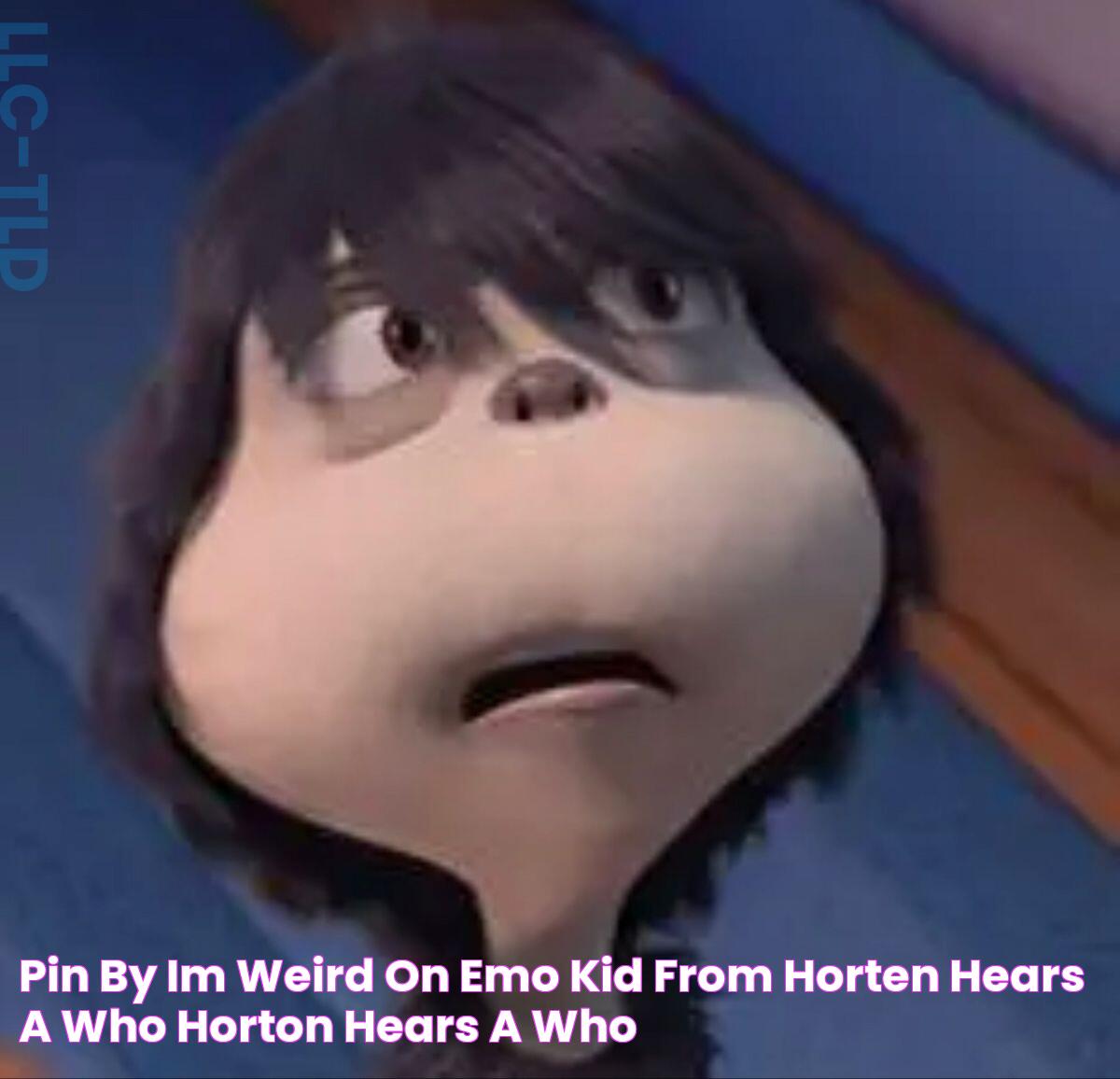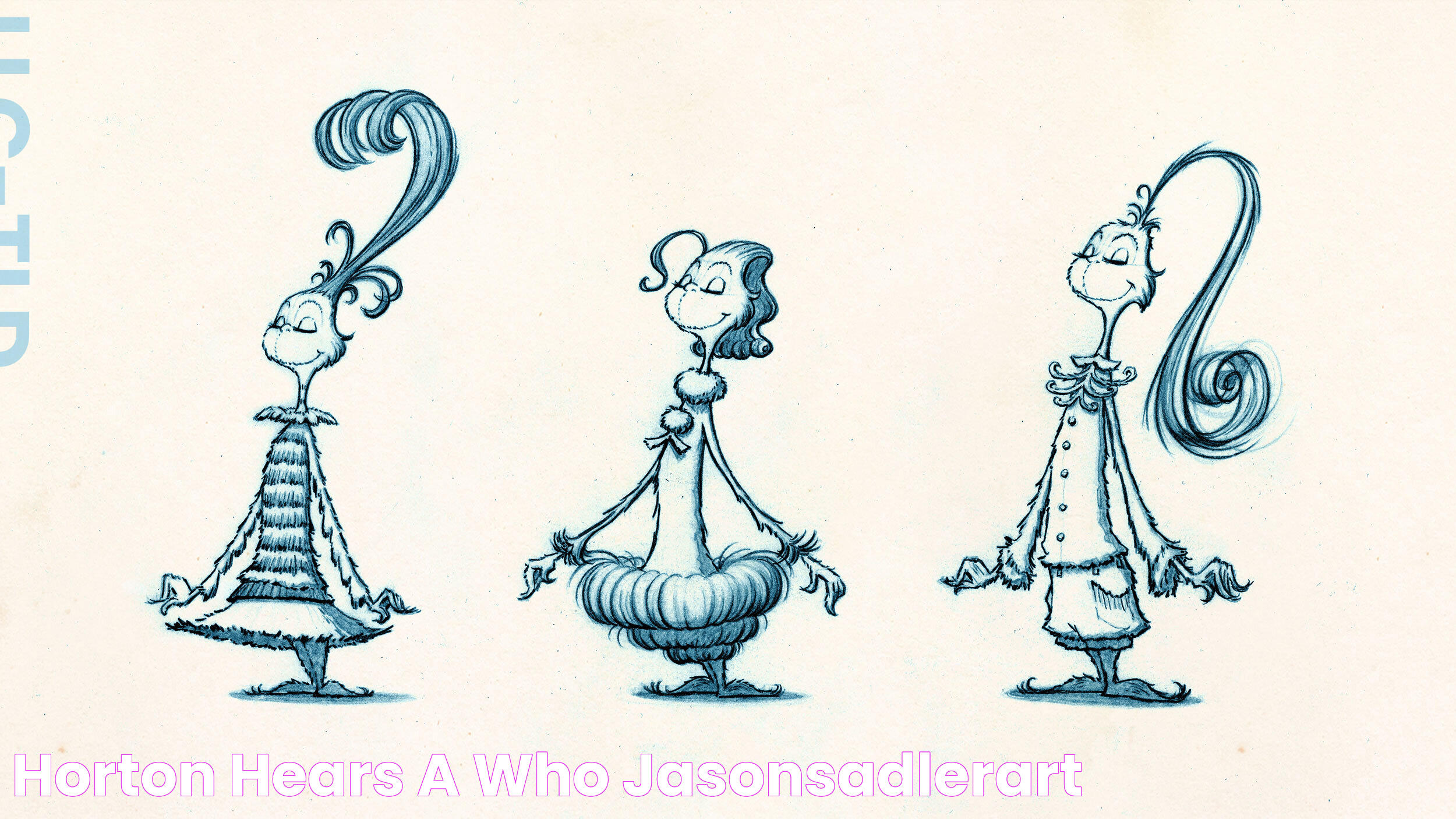Horton Hears a Who, Dr. Seuss's timeless tale of compassion, courage, and unwavering belief, has touched hearts for decades. But what happens when this classic story intersects with the brooding world of emo culture? Enter the "Horton Hears a Who Emo Kid," a fascinating concept that reimagines the whimsical universe of Horton through the lens of a subculture known for its emotional depth and introspection. This thought-provoking blend of two seemingly opposite worlds has sparked curiosity and inspired creative reinterpretations across art, storytelling, and online communities.
At first glance, the playful and optimistic tone of Dr. Seuss might seem to clash with the moody, introspective nature of emo culture. However, a closer look reveals surprising parallels: both celebrate individuality, resilience, and the power of connecting with those who feel unseen or unheard. The "Horton Hears a Who Emo Kid" concept delves deep into these shared themes, offering a fresh perspective that resonates with fans of all ages. From reimagining Horton's steadfast determination with an emo twist to exploring how the Whos might embody the themes of isolation and identity, this creative fusion is as intriguing as it is meaningful.
In this article, we take a deep dive into the world of "Horton Hears a Who Emo Kid," unpacking its origins, cultural significance, and the creative interpretations it has inspired. We'll explore how this imaginative blend has sparked discussions about self-expression, individuality, and the enduring relevance of Dr. Seuss's message in today's world. Whether you're a fan of the original story, a devotee of emo culture, or simply curious about the intersection of these two vibrant worlds, this article offers a comprehensive exploration of a truly unique phenomenon.
Read also:Bob Segerrsquos Astounding Net Worth An Iconic Journey Through Music And Success
Table of Contents
- Biography of Dr. Seuss: The Mind Behind Horton
- What Is Emo Culture and How Does It Relate to Horton?
- Who Is the "Horton Hears a Who Emo Kid"?
- How Do the Themes of Horton Hears a Who Align with Emo Ideals?
- Why Is the "Horton Hears a Who Emo Kid" Concept So Popular?
- Fan Art and Creative Interpretations of Horton Hears a Who Emo Kid
- What Psychological Perspectives Can We Draw from This Fusion?
- Pop Culture Collaborations: Emo Meets Whimsy
- What Is the Educational Value of the Horton Hears a Who Emo Kid Concept?
- How to Create Your Own Horton Hears a Who Emo Kid Character?
- Reception in Online Communities and Social Media
- Can It Inspire New Stories or Adaptations?
- Frequently Asked Questions
- Conclusion
Biography of Dr. Seuss: The Mind Behind Horton
The beloved author and illustrator Dr. Seuss, born Theodor Seuss Geisel on March 2, 1904, in Springfield, Massachusetts, is celebrated for his imaginative stories and iconic characters. His work has transcended generations, teaching children valuable lessons about kindness, perseverance, and social responsibility through playful rhymes and vibrant illustrations. Below is a quick snapshot of his life and achievements:
| Full Name | Theodor Seuss Geisel |
|---|---|
| Born | March 2, 1904 |
| Birthplace | Springfield, Massachusetts, USA |
| Famous Works | The Cat in the Hat, Green Eggs and Ham, Horton Hears a Who |
| Occupation | Author, Illustrator, Animator |
| Notable Awards | Caldecott Honor, Pulitzer Prize, Academy Awards |
Dr. Seuss’s legacy is defined by his ability to blend profound moral lessons with whimsical storytelling. "Horton Hears a Who," published in 1954, stands as one of his masterpieces, emphasizing the importance of empathy and the idea that "a person’s a person, no matter how small."
What Is Emo Culture and How Does It Relate to Horton?
Emo culture, short for emotional hardcore, originated in the 1980s as a subgenre of punk rock music. Known for its introspective lyrics and themes of emotional vulnerability, it quickly evolved into a broader cultural movement encompassing fashion, art, and a distinct philosophical outlook. But how does it connect to the whimsical world of Horton Hears a Who?
Core Values of Emo Culture
- Embracing emotions and self-expression
- Highlighting themes of isolation and connection
- Challenging societal norms and stereotypes
Shared Themes Between Emo Culture and Horton Hears a Who
Despite their differences, emo culture and Horton Hears a Who share several overlapping themes:
- Empathy: Horton’s unwavering belief in the Whos mirrors the emo emphasis on understanding and compassion.
- Identity: Both explore the significance of individuality and being true to oneself.
- Community: Horton’s mission to save the Whos underscores the importance of collective support, a sentiment echoed in emo communities.
Through this lens, the "Horton Hears a Who Emo Kid" concept becomes a creative platform for exploring these shared ideals in a fresh and modern context.
Who Is the "Horton Hears a Who Emo Kid"?
The "Horton Hears a Who Emo Kid" is not a character from Dr. Seuss’s original story but rather an imaginative concept that blends the whimsical world of Horton with the introspective essence of emo culture. This character represents a fusion of two vibrant worlds, celebrating individuality, emotional depth, and the power of belief in unseen possibilities.
Read also:Otis Williams Net Worth A Look Into The Life And Legacy Of The Temptationsrsquo Icon
What Would an Emo Kid Look Like in Horton’s World?
Picture a character with a Seussian twist: wild, colorful hair styled in classic emo fashion, dark yet whimsical attire, and an expressive personality that oscillates between brooding introspection and heartfelt optimism. This character might embody the Whos' struggle for recognition while carrying the emo ethos of self-expression and emotional honesty.
Symbolism Behind the Emo Kid
The emo kid in Horton’s world serves as a metaphor for the unseen and unheard, aligning with the overarching message of Horton Hears a Who: everyone matters, no matter how small or different they may seem. By giving this concept a face, fans have found a creative outlet to explore themes of identity, belonging, and resilience.

